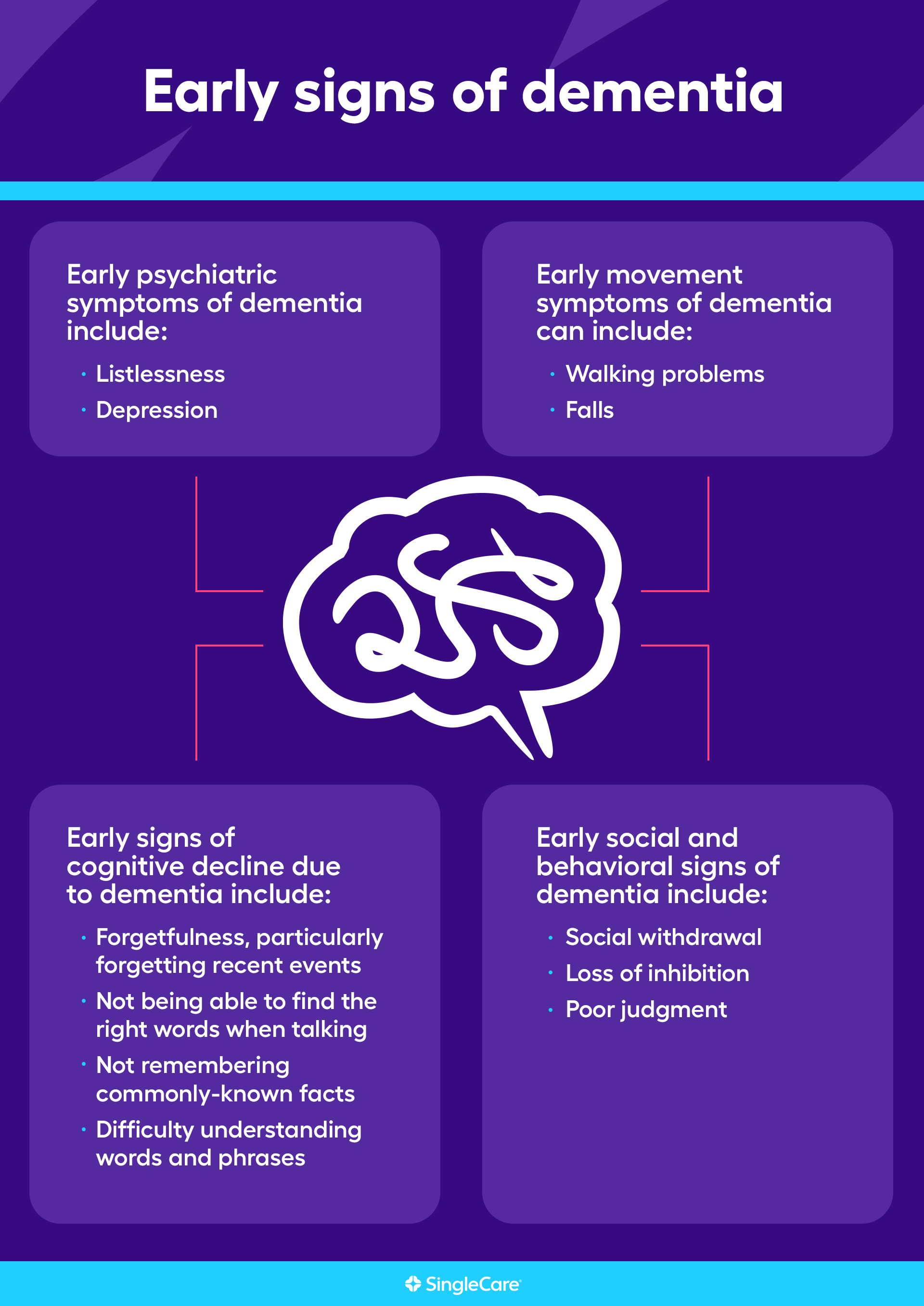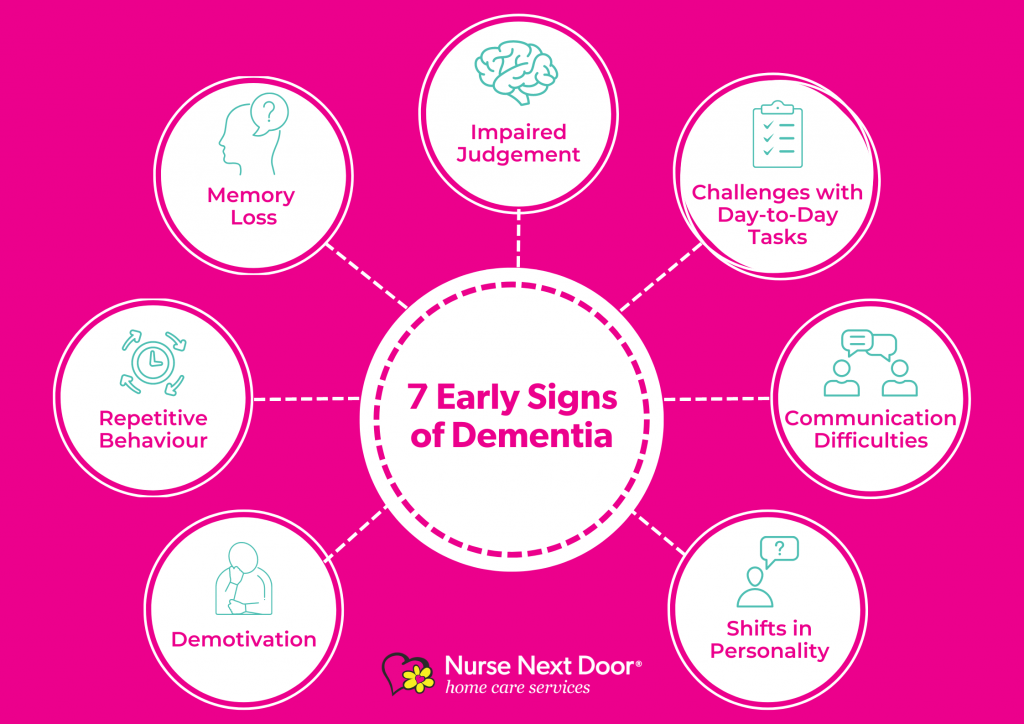A Caregiver's Toolkit for Managing Early Onset Dementia at Home
A Caregiver's Toolkit for Managing Early Onset Dementia at Home
Blog Article
Comprehending the Impact of Mental Deterioration on Daily Life and Caregiving
Mental deterioration impacts daily life in extensive ways, influencing not just those detected however additionally their caregivers. As cognitive decrease advances, you might observe modifications in communication and regular that challenge both events. Comprehending these changes is necessary for preserving dignity and involvement. But just how do you adapt your caregiving methods to support somebody traversing this complicated trip? The answers may surprise you as we check out the subtleties of this experience.
The Phases of Dementia and Their Results on Day-to-day Live
As you navigate the trip of dementia, recognizing its stages can substantially influence how you take care of day-to-day live. Mental deterioration normally proceeds through three primary phases: early, center, and late. In the onset, you might notice occasional memory gaps or trouble locating the best words. This can cause frustration, but identifying these indications early assists you adjust your routine and look for assistance.
Throughout the center phase, you'll experience much more obvious cognitive decrease. Daily tasks might end up being challenging, and maintaining your freedom might need adjustments. Making use of pointers and simplifying your setting can help.
In the late phase, individuals commonly require considerable aid with everyday activities. Planning for treatment ends up being vital, concentrating on comfort and lifestyle. By recognizing these stages, you're much better equipped to react proactively, guaranteeing you or your liked one can browse the difficulties with dignity and poise.

Adjustments in Interaction and Social Communication
Just how do adjustments in interaction influence your daily interactions as dementia progresses? As dementia developments, you may observe that easy conversations end up being difficult. Words may escape you, or you may struggle to locate the appropriate phrases. This can bring about disappointment for both you and your liked ones. Nonverbal hints, like motions or faces, come to be significantly crucial.
You may find it less complicated to attach with these means as opposed to counting exclusively on talked language. Listening abilities can likewise change; you could locate it more difficult to keep in mind or follow discussions what was just claimed (Fall Risk). This can lead to misconceptions or feelings of seclusion
Urging persistence and developing a helpful environment can help. Engaging in tasks that foster link, like songs or art, can enhance social communications. Bear in mind, preserving partnerships is still possible; it's just around adapting to new means of communicating.
Effect On Daily Routines and Activities
While navigating daily routines, you'll likely discover that jobs you when completed effortlessly become a lot more difficult as dementia progresses. You may discover yourself failing to remember actions in acquainted regimens or having a hard time to recall where you positioned things.
Adjusting your environment can assist; for circumstances, labeling things or utilizing checklists can streamline tasks. Engaging in repetitive, structured tasks can likewise provide convenience and a sense of success. Bear in mind, it's alright to ask for help.
Psychological and Behavioral Obstacles
Steering through day-to-day routines can produce not simply useful obstacles, however additionally psychological and behavioral ones. You might observe changes in state of mind, such as increased anxiousness or disappointment, which can stem from complication or difficulty in finishing jobs. As you navigate these minutes, it is essential to recognize that your loved one may reveal their feelings via behaviors like frustration or withdrawal.
These emotional feedbacks can be unpredictable and may emerge without warning, leaving you both sensation bewildered. You might locate that acquainted atmospheres or regimens can aid decrease anxiousness, yet preserving patience ends up being substantial. It is very important to confirm their sensations, even if you don't totally comprehend them.
The Function of Caregivers in Sustaining People With Dementia
As a caregiver, you play a crucial role in offering emotional assistance for people with mental deterioration. Establishing daily care routines can produce a feeling of stability and comfort, assisting to alleviate their anxiousness. By recognizing their demands and making use of effective methods, you can significantly improve their top quality of life.
Emotional Support Strategies
When caring for somebody with dementia, understanding the emotional landscape is crucial for providing effective assistance. Basic gestures, like holding their hand or keeping eye get in touch with, can create a feeling of safety and security. Ultimately, do not forget to take care of your very own emotional demands; seeking support for yourself can boost your capacity to care for them.
Daily Care Routines
Developing everyday treatment routines is essential for supplying stability and convenience to individuals with mental deterioration, as these routines can assist decrease complication and anxiety. You can start by laying out a constant timetable for meals, activities, and remainder. This predictability helps your liked one feel more safe and secure and engaged.
Include familiar tasks, like folding washing or watering plants, which can stimulate positive memories and promote a sense of achievement. Usage visual hints, such as schedules or lists, to lead them via the day.
Be flexible, though; adapt regimens as needed based on their mood or energy degrees. Early Onset Dementia. Bear in mind, your patience and understanding are important in steering their altering requirements, guaranteeing they really feel sustained and valued throughout their life
Creating a Safe and Comfortable Living Atmosphere
Producing a comfortable and risk-free living atmosphere is essential for people with dementia. You'll intend to make home safety adjustments that minimize dangers and assure knowledge to provide a sense of convenience. By focusing on these aspects, you can assist produce an area that supports both safety and wellness.
Home Safety Adjustments
As you browse the obstacles of dementia, making home security adjustments can greatly improve comfort and safety and security. Begin by removing tripping risks like carpets and mess, guaranteeing sidewalks are clear. Mount grab bars in restrooms and non-slip floor coverings in the shower to avoid falls. Consider utilizing brighter illumination and evening lights to improve presence, specifically my latest blog post throughout nighttime. Label important locations, such as the bathroom and kitchen, with clear indicators to aid with positioning. Secure any kind of sharp items or toxic materials unreachable. Furthermore, assess your home's locks and alarm systems to verify they're straightforward and supply peace of mind. These alterations not only promote safety and security but additionally motivate independence, enabling your loved one to really feel more secure in their setting.
Convenience and Familiarity
After making certain a safe atmosphere with needed modifications, promoting convenience and familiarity is crucial for individuals with dementia. Begin by individualizing their space. Use acquainted shades, decors, and photographs that evoke delighted memories. A favorite covering or chair can supply a feeling of protection. Preserve a consistent routine to assist them feel based and reduce anxiousness. Straightforward, familiar dishes can likewise develop a comforting atmosphere. Keep paths clutter-free and clear to avoid confusion. Incorporate soft lighting, as bright lights can be disorienting. Consider adding comforting aromas, like lavender, to advertise leisure. Participating in acquainted tasks, such as paying attention to songs or horticulture, can boost their feeling of belonging, making their living setting a real refuge.
Strategies for Reliable Caregiving and Assistance
While maneuvering the challenges of mental deterioration treatment can feel overwhelming, executing effective approaches can substantially enhance both the caregiver's and the person's everyday experience. Begin by establishing a regimen; predictability helps in reducing anxiousness for both you and your liked one. Use clear, basic communication-- straight inquiries and short sentences can avoid complication.

Do not neglect to take care of on your own; schedule breaks and connect with support teams. Sharing experiences with others in similar scenarios can supply valuable insights and emotional alleviation.
Lastly, stay patient and adaptable. Mental deterioration can bring unforeseeable adjustments, so adapting your technique is important. By employing these approaches, you can promote a much more positive setting that profits both you and your loved one.
Regularly Asked Concerns

What Are the Various Types of Dementia?
You'll find several sorts of dementia, including Alzheimer's, vascular dementia, Lewy body dementia, and frontotemporal dementia. Each type affects memory and cognitive function differently, so understanding the distinctions is important for proper medical diagnosis and care.
How Can I Aid A Person With Early-Stage Mental Deterioration?
You can assist somebody with early-stage dementia by holding your horses, providing assistance, and motivating them to engage in activities they delight in. Keeping linked here regimens regular and preserving open communication can also make a substantial distinction in their day-to-day live.
Are There Financial Resources Available for Dementia Treatment?
Yes, there are monetary resources readily available for mental deterioration care. You can explore federal government help programs, nonprofit organizations, and insurance policy choices. It's also important to consult neighborhood companies for particular sources tailored to your situation.
What Lawful Considerations Should Caregivers Know?
As a caretaker, you ought to consider power of lawyer, healthcare proxies, and guardianship regulations. It's necessary to understand the lawful rights and duties you hold, ensuring your loved one obtains suitable treatment and security.
Just How Can I Deal With Caretaker Anxiety?
You can handle caregiver stress by focusing on self-care, looking for assistance from teams or friends, setting practical expectations, taking breaks, and exercising relaxation strategies. Keep in mind, your wellness matters simply as much as the individual you're caring for.
Comprehending the Influence of Dementia on Daily Life and Caregiving.
As you browse the journey of dementia, comprehending its phases can significantly influence check out here how you handle daily life.While navigating daily routines, you'll likely see that jobs you once completed easily come to be more tough as dementia advances.Establishing everyday treatment regimens is important for supplying security and convenience to individuals with dementia, as these regimens can aid decrease complication and stress and anxiety.While navigating the challenges of dementia care can feel overwhelming, executing efficient approaches can considerably improve both the caregiver's and the individual's day-to-day experience.
Report this page